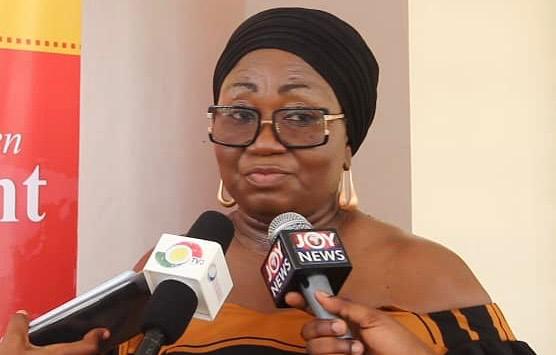The recent actions of President John Dramani Mahama regarding the Ghanaian judiciary have sparked significant controversy and raised concerns about the separation of powers and the independence of the judicial branch. The President’s initiation of removal proceedings against Chief Justice Gertrude Esaaba Torkornoo, coupled with his simultaneous nomination of seven new justices to the Supreme Court, has drawn criticism from opposition figures who view these moves as a calculated attempt to exert undue influence over the judiciary and compromise its integrity. Patricia Appiagyei, the Deputy Minority Leader in Parliament and MP for Asokwa, has been particularly vocal in her condemnation of the President’s actions, characterizing them as a blatant assault on judicial independence and a dangerous precedent for the future of Ghana’s democracy.
At the heart of the controversy lies the petition for the removal of Chief Justice Torkornoo. President Mahama, acting on the advice of the Council of State, has established a five-member committee to investigate three separate petitions calling for the Chief Justice’s removal. While the specific details of these petitions remain unclear, their timing, coinciding with the nomination of a significant number of new justices, has fueled suspicions of a coordinated effort to reshape the Supreme Court to the executive’s advantage. Critics argue that this move creates a chilling effect on judicial independence, potentially influencing the decisions of judges who may fear similar repercussions if they fail to align with the executive’s agenda.
Adding to the concerns is the alleged conflict of interest involving the lawyers representing those petitioning for the Chief Justice’s removal. Appiagyei has pointed out that these lawyers have represented both President Mahama and the Speaker of Parliament in ongoing legal matters, raising questions about their impartiality and the potential for political motivations behind the petitions. This perceived conflict further underscores the apprehension surrounding the removal process, suggesting a potential lack of due process and a predetermined outcome intended to pave the way for a more compliant judiciary.
The nomination of seven new justices to the Supreme Court has further intensified the debate. While it is within the President’s power to nominate justices, the sheer number of nominees presented simultaneously has raised eyebrows. Critics argue that this unprecedented move is designed to “pack” the court with justices sympathetic to the executive, effectively tilting the balance of power in favor of the President and weakening the judiciary’s ability to act as a check on executive authority. This perceived attempt to manipulate the composition of the Supreme Court undermines the principle of judicial independence and raises serious concerns about the future of democratic governance in Ghana.
Appiagyei and other opposition figures see these actions as a clear indication of President Mahama’s intent to erode the separation of powers and consolidate control over the judiciary. They argue that by removing a sitting Chief Justice and appointing a significant number of new justices, the President is attempting to create a more pliable Supreme Court, one less likely to challenge his actions or those of the executive branch. This, they warn, sets a dangerous precedent and threatens the very foundations of Ghana’s democratic system, where the judiciary should serve as an independent check on the other branches of government.
The ongoing situation in Ghana highlights the importance of a strong and independent judiciary in safeguarding democratic principles. The controversy surrounding the removal proceedings against Chief Justice Torkornoo and the nomination of new Supreme Court justices underscores the need for transparency and due process in judicial appointments and disciplinary actions. The perceived attempt to influence the composition and decisions of the Supreme Court raises critical questions about the balance of power and the future of judicial independence in Ghana. The international community and human rights organizations should closely monitor the developments and advocate for the protection of judicial autonomy and the rule of law in the country. The outcome of this situation will have significant implications for the future of democracy and the rule of law in Ghana and could serve as either a cautionary tale or a beacon of hope for other nations grappling with similar challenges.














